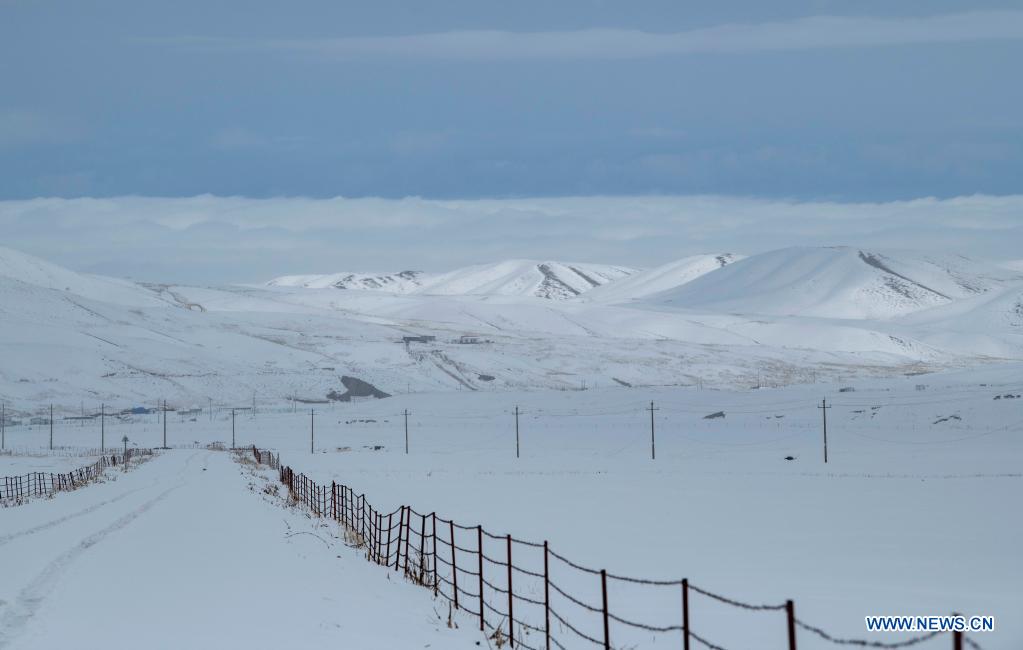Mobile home gives traveler more time to fully explore the mountains


Driving his well-appointed caravan, Liu Jiang, 58, is a regular visitor to the Tianshan Mountains along the Dushanzi-Kuqa Highway.
The route, which connects Dushanzi in the north of Xinjiang Uygur autonomous region and Kuqa in the south, offers magnificent views of mountains, lakes and deserts.
Liu, who retired about two years ago from an automobile company in Chongqing, said: "Having a caravan gives you much greater travel flexibility. You don't have to hurry to reach booked accommodations on time."
He started to tour China by caravan about 10 years ago, and was among the first to explore the country by driving recreational vehicles.
As the highway is only open to traffic from June to early October, Liu believes that this triggers tourists' curiosity about the region.
"The highway is one of the three major routes that connect southern and northern Xinjiang, with different cultures well preserved along the route. It's also hard to find such changeable and magnificent views elsewhere," he said.
"The highway should be visited more than once, as there's so much to explore, with new experiences emerging each time," he said. In 2017, Liu drove the 561-kilometer length of the Dushanzi-Kuqa Highway three times in quick succession.
As the weather in the Tianshan Mountains is changeable, visitors wait for the best light to photograph the scenery.
Liu stressed that one of the main advantages of having a recreational vehicle is that it allows him to explore the region at a more leisurely pace.
Xinjiang is such a vast area, and it can take a long time to reach overnight accommodations along the highway. With a mobile home, Liu doesn't have to worry about this, or make detailed travel plans.
He stops wherever he wants to, enjoys the scenery at sunrise and sunset, takes photos and then gets back on the highway. He stays overnight in scenic spots such as grasslands and villages to enjoy the slow pace of life.
In the 7th century, the Chinese monk Xuanzang traveled to India, from where he returned to China with Buddhist scriptures, passing through Xinjiang.
During his travels along the highway Liu has visited places where the monk stopped.
It is also routine for regular visitors such as Liu to get to know locals and other tourists, who welcome him warmly.

































